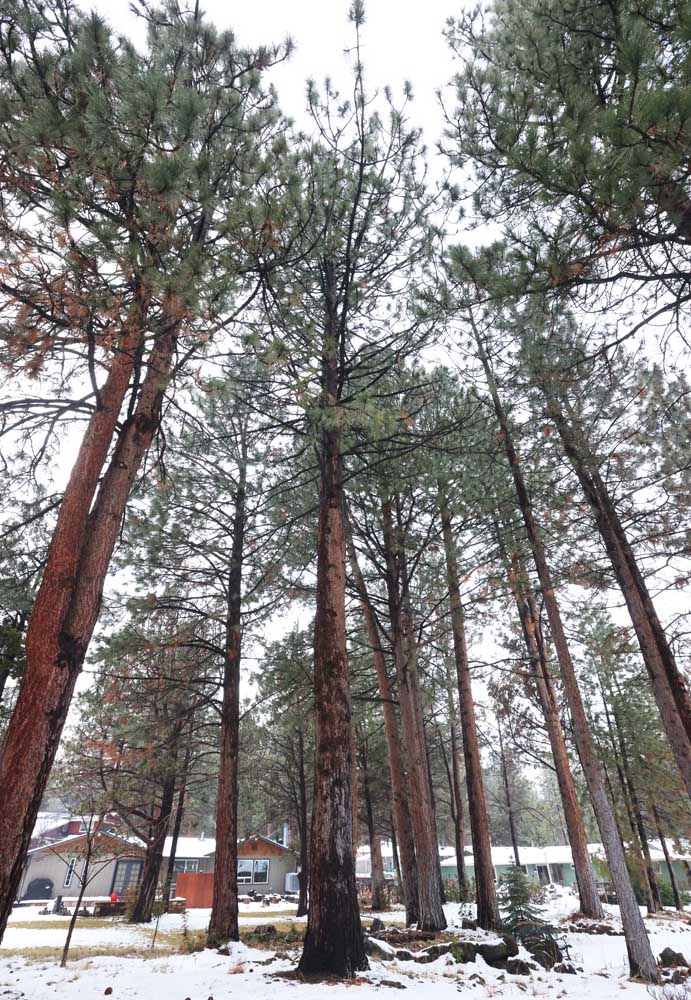More groups join appeal of Bend tree preservation code
Published 4:00 pm Wednesday, August 28, 2024

- A committee has provided the Bend City Council with recommendations designed to help preserve the city's tree canopy.
An appeal filed earlier this month by a Bend homebuilder says a tree code adopted by the city of Bend in June to protect the urban tree canopy is flawed and will only serve to increase the cost of housing.
Now other organizations and developers have joined Pahlisch Homes in its bid to halt implementation of the code.
Trending
Pahlisch Homes filed the appeal earlier this month and sent a notice to city officials that it objects to certain aspects of the code designed to protect trees from development. The homebuilder is now joined by the Central Oregon Builders Association, Bend YIMBY, Brooks Resources, Central Oregon Association of Realtors, Empire Construction and Development and Hayden Homes.
Pahlisch filed its motion to intervene with the Oregon Land Use Board of Appeals on Aug. 6. The tree regulations went into effect on Aug. 16 — the legal action by Pahlisch does not halt its implementation.
“We are asking the city to come back to the table to address specific issues in the code that were raised by housing advocates throughout the public process, and that will make housing development more difficult and more expensive,” said Morgan Greenwood, vice president for government affairs for the Central Oregon Builders Association.
Greenwood listed specific recommended changes, including:
- exempting from the tree code master-planned areas that were approved before the code went into effect
- requiring replacement or preserved trees be maintained for three years
- making the payment-in-lieu-of-preservation fee proportional to the impact of the removed trees
- not including trees in rights-of-way in inventories or preservation
- including required street, parking lot and landscaping trees as part of the replacement mitigation count
- and reviewing the tree code annually.
Arguments against the code
The group argues that the tree code will discourage or prevent housing production in Bend, and that will in turn make it more difficult to increase the city’s housing supply. It adds that the option of a fee paid to the city in lieu of preserving trees will be passed onto consumers, making housing more expensive for homebuyers.
“Prior to adopting the tree code, the city failed to evaluate the impact of the code on the cost of housing,” said Greenwood.
Trending
The groups say the city should have a tree code, but amendments are needed to the one that was adopted in June in order to “better balance community housing concerns.”
Dan Pahlisch, president and chairman of the board of Pahlisch Homes, said the goal is not to eliminate tree preservation codes but rather to rethink the rules and provisions.
“This tree code is adding new costs to housing in Bend, forcing builders to walk away from projects that would have otherwise penciled, or to increase sale prices instead,” Pahlisch said.
The groups say earlier complaints were ignored by the city prior to the code’s adoption, leading to legal action. Use of their recommendations would have allowed for tree preservation while also supporting affordability, according to their joint statement.
The intent to appeal the code was filed by Radler, White, Parks & Alexander, the law firm representing Pahlisch Homes.
Steven Hultberg, a partner with the law firm, said other than new parties intervening in the case, there are no new updates related to its status.
Bend responds
When Pahlisch Homes filed its original petition earlier this month, the city responded with a statement that Pahlisch made “unnecessarily inaccurate” statements in the media about the process by which the regulations were passed.
Members of the Tree Regulation Update Advisory Committee, which devised the regulations, included representatives from Pahlisch Homes and others now in opposition to the code, Bend Mayor Melanie Kebler told The Bulletin. Greenwood was also on the committee, as was Jim Roberts, a representative of Bend YIMBY, which is a pro-housing group whose acronym stands for “Yes In My Back Yard.”
“That committee produced a recommended policy that was a compromise between all sides,” said Kebler. “At our final hearing, council then made further changes to the code based on feedback from the development community. We did not ignore requests to compromise, and the code is reasonable and balanced.”
City officials have long stated that increasing Bend’s housing stock is a goal to provide more affordable housing for its residents and policy changes have been made to support housing.
Kebler reiterated that on Wednesday.
“Bend is building more homes per capita than any other city in the state,” said Kebler. “Housing affordability remains a top goal for the council, and we will continue the policy work to remove barriers to housing and lower housing costs.”
More Coverage
Deschutes County officials weigh RV park, trail system on 500-acre lot








